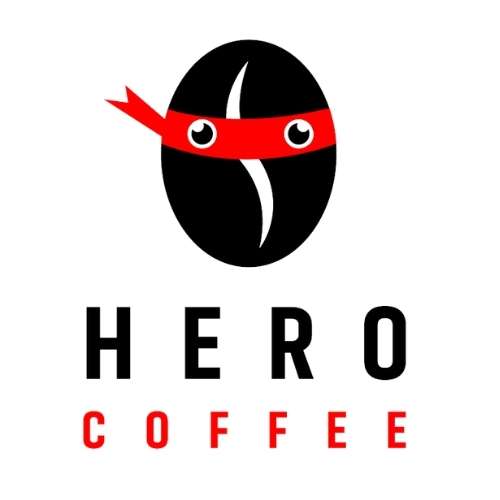Why does my coffee taste burnt? Burnt coffee taste, whose bitter flavor and aroma are easily recognizable, is the result of over-roasting the coffee beans during the roasting process.
To learn how to prevent my coffee from tasting burnt, it’s essential to understand why burnt coffee tastes terrible in the first place.
Here are the seven reasons your coffee might have a burnt taste and how you can fix this problem to enjoy the perfect cup of joe.
1. The Coffee Beans Are Old
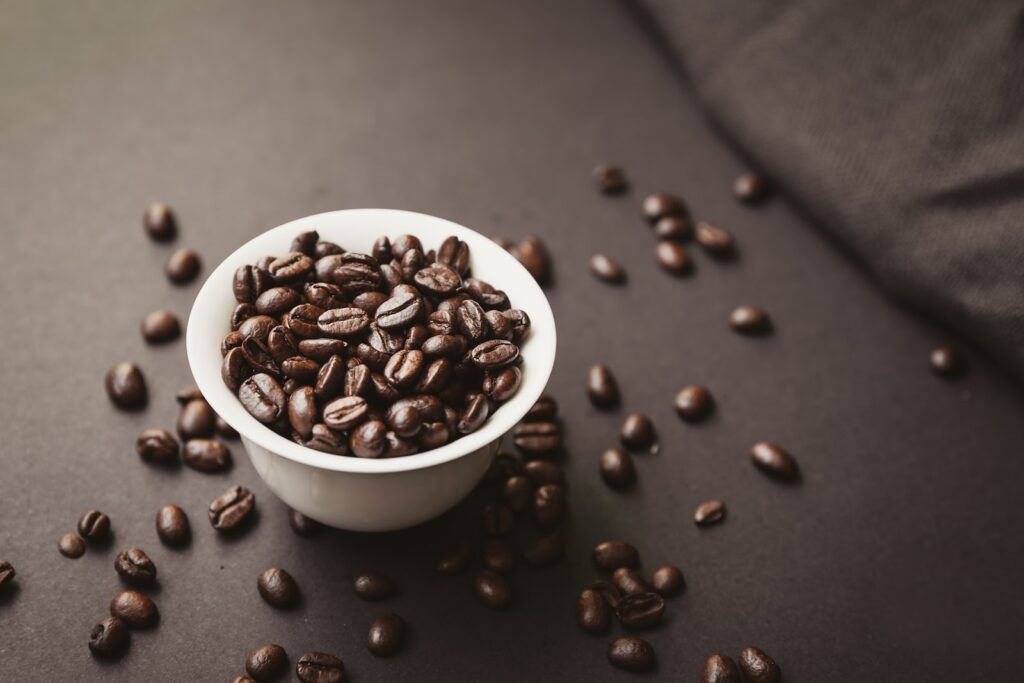
The first answer to the question, ‘Why does my coffee taste burnt’ is that the roasted coffee beans are old.
Over time, roasted coffee beans exposed to air oxidize, turning bitter and stale. To avoid this, buy whole coffee beans or pre-ground coffee in small quantities.
You should also always store your coffee in an airtight container in a cool dark place (not the fridge).
Burnt-tasting coffee is usually due to stale coffee grounds. To avoid a burnt flavor, use freshly ground beans.
Coffee grounds can be stockpiled in an airtight box in a cool dark place for up to one week, but it’s best to use it within three days.
If you only have whole coffee beans left, don’t worry; you can grind them just before brewing and store them in an airtight container.
2. Roast Is Too Dark
Poor roasting is, unfortunately, a common cause of burnt coffee flavors. Extremely dark coffee will almost certainly result in a bitter, burnt-tasting coffee.
Cold brew and other brewing methods can sometimes hide the bitter taste that would otherwise be more pronounced with a darker roast.
When you doubt how to fix your burnt-tasting coffee, try mixing it with milk or cream to mellow out the flavor. It may help to let the coffee cool for a few minutes before drinking.
Even if your coffee beans aren’t very dark, they can still have a burnt taste if they aren’t roasted evenly. Some beans might have been roasted too long, while others were not done enough.
A poorly roasted coffee could also have burnt notes from being stored at too high a temperature (such as on top of an oven).
Many people find that using a French press helps prevent burnt tastes because it’s challenging to over-extract.
Others find that decaf coffees are less likely to have a burnt taste because their caffeine content is lower, allowing the nuances of other flavors to come through more prominently.
3. The Coffee Machine Is Dirty
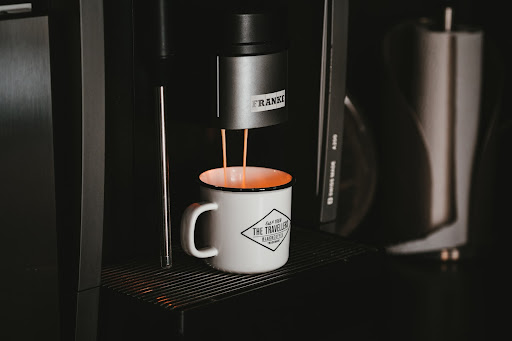
When do you typically clean your coffee maker? It’s essential to do this after each brewing process to avoid the burnt taste.
You can also buy a permanent filter that makes it easier to keep the coffee machine clean without worrying about it.
The flavor of your coffee will undoubtedly be affected if you use a dirty French press, coffee maker, or espresso machine. Bitter-tasting coffee and burnt-tasting espresso are usually caused by using old beans, over-extraction, and other factors.
So next time you’re brewing dark roast coffee, make sure your equipment is spick and span!
4. The Water Temperature Is Too Low / Too Hot
If the brewing water is too hot, it can give your coffee a harsh, bitter taste that most people don’t like.
On the other hand, if you use water that’s not hot enough to extract all of the coffee oils, you’ll get an under-extracted brew with a weaker flavor and less aroma.
A proper coffee machine should care for this problem by providing heated water at just the right temperature.
It’s a frequent misperception that coffee should be brewed using boiling water. Instead of 212 degrees Fahrenheit boiling water, the proper temperature for preparing coffee is between 195 F and 205 F.
Although a 7-degree variation may not appear as much, using cooler water for your coffee can drastically alter the flavor.
It can be challenging to utilize the correct brewing temperature if you don’t have a thermometer. Generally, you must wait 30 seconds after the water has cooled before brewing. This will get the temperature of most teapots and water heaters close enough to 205 F.
5. The Water-to-Coffee Ratio Is Wrong
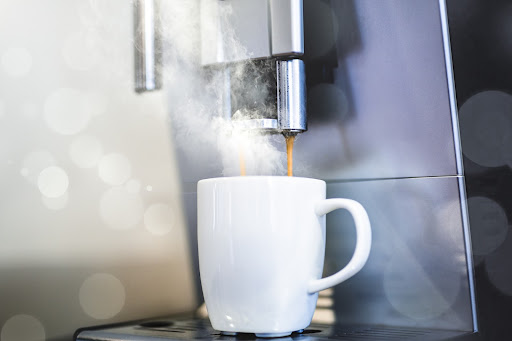
Another reason why you might end up drinking burnt-tasting espresso is if you got the wrong water-to-coffee ratio.
Significant amounts of coffee and not enough water will cause your coffee to have a burnt taste, while too much water and not enough coffee will make it taste stale or under-extracted. Using between 4g of ground coffee for every 100 ml of water is best.
The “Golden Ratio” is a general rule that states one or two tablespoons of ground coffee match up with six ounces of water. This can be altered to meet different taste preferences.
Even when you get the correct ratio, coffee can taste burnt if you use hard water for your brew. Hard water contains calcium and magnesium that react with compounds in coffee to create bitter-tasting flavors.
So try filtering your water before making your next pot of coffee and see if it helps to remove any strange odors or flavors.
If not, there’s no harm in investing in a separate showerhead filter just to brew your morning coffee. You may reduce additional costs by using filtered water instead of bottled mineral water.
6. The Water Quality Is Low
Although it might seem obvious, good water is the foundation of good coffee. If tap water tastes funky or has a lot of chlorine, you need to find a different source.
If you don’t like investing in a whole-house filter and still want access to better-tasting coffee, I recommend buying bottled spring water.
Using water you’d be glad to drink while making coffee is an excellent general rule of thumb, so if you filter your drinking water, you should also be filtering your coffee water.
Boil some filtered or bottled spring water before you brew your coffee and see if that helps fix the taste problem. You’llYou’ll be surprised at how much better the quality will be!
7. The Brewing Method Is Wrong
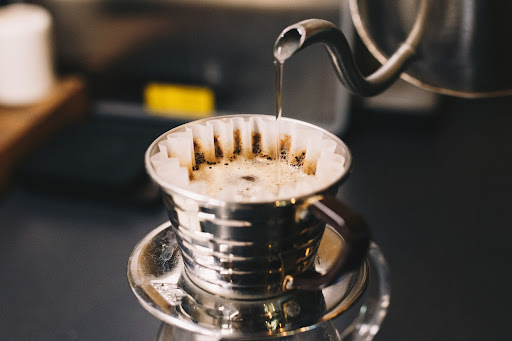
Analyzing your coffee brewing technique attentively is crucial to identifying bitter coffee. For example, espresso and French press coffee are more likely to taste burnt because they use intense heat and pressure to extract the flavor from the beans.
The best way to ensure that you’re getting a sweet cup of coffee is by using cold brew or Turkish methods, which take much longer than the ones mentioned above but are far less likely to make your drink taste like charcoal.
Also, water is typically not distributed uniformly across the coffee grinds by automatic drip machines.
Due to their heating element, there may be a buildup of minerals near the bottom and hotter spots in some places. If this happens, it can lead to scorching coffee grounds and an uneven extraction rate.
The fact that many automatic brewers feature hot plates is a third, less frequent, explanation. Try not using the built-in warming plate on your brewer to see if it makes a difference.
Manual pour-over coffee is worth a try if you enjoy the flavor of filter coffee but prefer a higher degree of customization. It’s easy enough to do at home and has a low chance of making your coffee taste bitter.
You will need hot water, ground coffee, filters, and a container with a small opening (such as a cone-shaped pitcher). Place the ground coffee into the filter paper, then fold it over, so there’s no exposed surface area before boiling water through slowly.
Conclusion
It’s possible to avoid the burnt coffee flavor by making a few little adjustments to the brewing procedure:
- Make sure you are using fresh beans, as these will roast faster and create a better-tasting cup of coffee than old beans.
- Ensure that your coffee grinder is sharp to produce a finer grind.
- Keep the pot clean and dry before pouring in the ground beans and water; this prevents adding any residue flavors to your drink.
- Measure your water carefully, so you don’t over-extract or under-extract it.
- Use the right grind size for your desired brew method (i.e., French press).
Finally, pour away from yourself as this minimizes air contact with your drink which also helps prevent over-extraction and bitterness in the flavor.
For those who still want their coffee super hot, remember to take small sips and enjoy the warming sensation!

